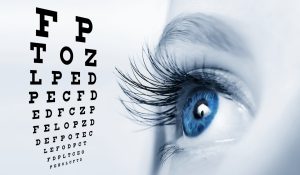Can colour blind people drive?
Yes, colour-blind people can drive. Colour blindness is a condition that affects a person’s ability to see colours accurately. It does not affect a person’s ability to see in the dark or to drive.
The impact of colour blindness on individuals can vary depending on the severity
Colour blindness, also known as colour vision deficiency, is a condition that affects a person’s ability to perceive certain colours or distinguish between them. It is typically caused by abnormalities or deficiencies in the colour-sensing pigments in the cone cells of the retina.
The most common types of colour blindness are:
- Red-green colour blindness: This is the most common form and is more prevalent in males. People with red-green colour blindness have difficulty distinguishing between shades of red and green. They may perceive these colours as brownish, yellowish, or gray.
- Blue-yellow color blindness: This type is rarer and affects the ability to differentiate between shades of blue and green, as well as between shades of yellow and violet. Blue may appear green, and yellow may appear violet or gray.
- Total colour blindness: This is a rare form of colour blindness in which a person sees the world in shades of gray. It is caused by the absence or malfunctioning of all three types of cone cells.
Colour blindness can have various causes, including:
- Genetics: The most common cause of colour blindness is an inherited genetic mutation that affects the development or functioning of the cone cells in the retina. These mutations are carried on the X chromosome, which is why red-green colour blindness is more common in males.
- Acquired conditions: Some medical conditions or eye diseases, such as age-related macular degeneration, cataracts, or glaucoma, can cause colour vision deficiencies.
- Medications and chemicals: Certain medications, such as some antibiotics and antipsychotics, can affect colour vision. Exposure to certain chemicals, such as fertilizers or industrial toxins, can also cause colour vision problems.
- Aging: As people age, there may be a natural decline in colour vision due to changes in the eye’s structure and function.
The impact of colour blindness on individuals can vary depending on the severity and type of deficiency. It may affect daily tasks that rely on colour discrimination, such as identifying ripe fruit, matching clothing, or reading colour-coded information. However, with adaptation and the use of alternative cues (e.g., brightness or position), many individuals with colour vision deficiencies can effectively navigate their environment.
It’s important to note that colour blindness does not typically cause significant health problems or vision loss. However, it can affect certain professions or activities that require accurate colour perception, such as being a pilot, electrician, or graphic designer.

Related FAQs
Wearing glasses or contacts can indeed affect dry eye symptoms, but the impact varies. Glasses can help shield the eyes from environmental factors that exacerbate dry eye, such as wind or air conditioning. On the other hand, contact lenses can sometimes worsen dry eye symptoms by absorbing tear moisture or by causing irritation. Certain types of contact lenses are designed to be more breathable and retain moisture better, which may be suitable for people with dry eyes. It’s crucial to discuss with an eye care professional to find the most appropriate type of contact lens or glasses. Proper care and hygiene when using contacts, along with regular breaks from screen use, can help minimize dry eye symptoms.
Dry eye syndrome can be both a temporary condition and a chronic disease, depending on its cause and severity. Environmental factors or certain life situations, such as screen use or air travel can cause temporary dry eye. Chronic dry eye, on the other hand, may result from systemic diseases, medication side effects, or age-related changes in tear production. Management and treatment can alleviate symptoms, but chronic dry eye often requires ongoing therapy. It’s important to consult with an eye care professional for an accurate diagnosis and treatment plan. Understanding the underlying cause is key to determining whether dry eye syndrome will be a temporary issue or a chronic condition.
Yes, some specific exercises and therapies can help relieve dry eye symptoms. Blinking exercises, for example, can help improve meibomian gland function and tear film stability. Warm compresses applied to the eyes can also stimulate tear production and release oils from the glands in the eyelids. Gentle eyelid massages can help spread the oils evenly across the eye surface, reducing dryness. Using a humidifier to add moisture to the air and taking regular breaks to rest the eyes during screen time can also be beneficial. Newer technologies such as IPL (Intense Pulsed Light) and RF (Radio Frequency) are also becoming available. Consulting with an eye care professional for personalized advice on exercises and therapies is recommended.
Sleep plays a crucial role in managing dry eye syndrome. Poor sleep can lead to insufficient eye lubrication and worsening dry eye symptoms. During sleep, the eyes rejuvenate and produce the moisture needed for the next day. Good sleep hygiene practices can help ensure the eyes are well-rested and hydrated. It’s also important to avoid sleeping with any airflow directly hitting the face, as this can dry out the eyes. Establishing a regular, restful sleep schedule can significantly improve dry eye symptoms.
Indeed, some medications can exacerbate dry eye symptoms. Diuretics, antihistamines, antidepressants, and some blood pressure medications are known to reduce tear production or alter tear composition. It’s important to review any current medications with a healthcare provider to determine if they could be contributing to dry eye symptoms. Sometimes, alternative medications with fewer dry eye side effects can be prescribed. Always consult with a healthcare professional before making changes to medication regimens. Patients should also stay hydrated and consider using artificial tears if taking medications known to cause dryness.
Yes, it is quite common for dry eye symptoms to worsen in certain weather conditions. Dry, windy, or smoky environments can lead to increased tear evaporation, exacerbating symptoms. Conversely, high humidity can sometimes alleviate dry eye symptoms because the air is more saturated with moisture. Cold weather, especially during winter when indoor heaters are used, can also dry out the eyes. It’s advisable to use humidifiers in such conditions to maintain indoor humidity levels. Wearing wraparound glasses or protective eyewear outdoors can help shield eyes from harsh conditions.
West Edmonton Vision Clinic
Visit our vision clinic in central West Edmonton for comprehensive eye exams, contact lens fittings, glasses, and more. LL Eyecare Centre is dedicated to providing the highest quality optometric services and products to our patients. Our team of experienced optometrists is here to help you with all of your eye care needs. Schedule an appointment today!
Clinic Hours
Monday Closed
Tuesday 9:00-5:00
Wednesday 9:00-5:00
Thursday 9:00-5:00
Friday 9:00-5:00
Saturday 9:00-2:00
Closed Sunday / Holidays




